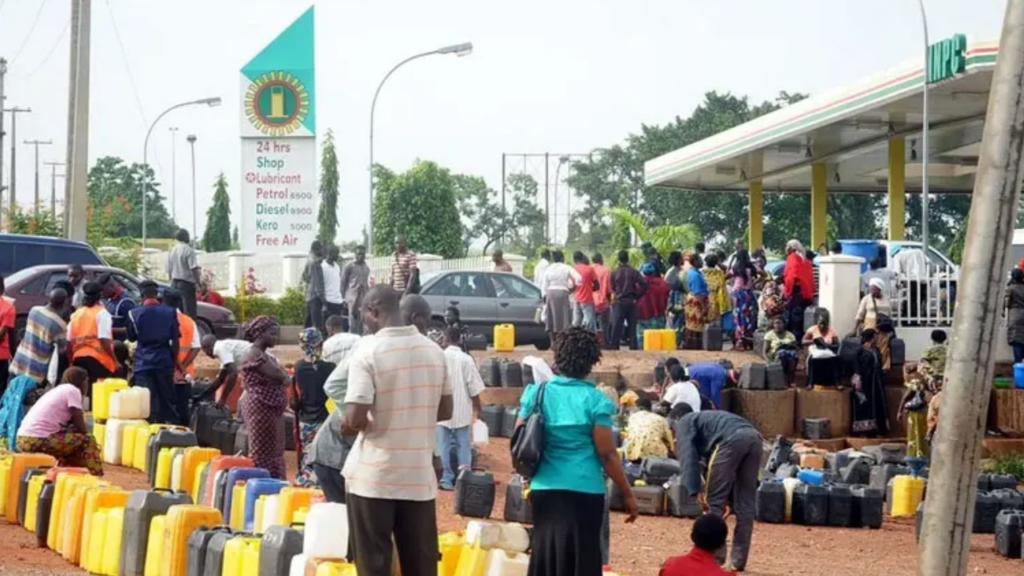Solid Minerals
Platinum Miners Consider New Union Offer to End Strike

JOHANNESBURG – The latest rounds of strikes that have crippled platinum mining in South Africa since January entered a new stage Wednesday, after platinum producers were handed a revised union proposal to end the industrial action.
South Africa’s Mining Minister Ngoako Ramatlhodi presented a new proposal on behalf of the Association of Mine workers and Construction Union to Anglo American Platinum Ltd., Impala Platinum Holdings Ltd. and Lonmin PLC. The ministry declined to provide details on the proposal submitted by AMCU, which has spearheaded the strike by 70,000 platinum mine workers since the end of January, bringing the country’s production of the precious metal to a near standstill.
The AMCU has demanded higher wages for its members. An earlier wage offer by the platinum producers was rejected by the union, according to two people familiar with the negotiations.
Mr. Ramatlhodi said the companies requested time to consider the latest proposal from the union. The AMCU didn’t respond for a comment when contacted by The Wall Street Journal.
The world’s three-biggest platinum producers have lost more than $2 billion in combined revenue as a result of the strike. Platinum exports are also an important revenue generator for the South Africa government, and employees have also lost more than a third of their annual salaries.
Mining companies have said they could soon be forced to restructure their mines because of the cost from the strike. Lonmin last month fired 235 workers and Anglo American Platinum has also threatened too cut jobs.
Data released at the end of May showed a 0.6% annualized drop in South Africa’s gross domestic product in the first three months of this year, with mining output having fallen the most since 1967. The country’s central bank has forecast South Africa’s economy will grow 2.1% this year, up just slightly from a 1.9% expansion in 2013. That is nowhere near enough to dent an official unemployment rate of 25%.
“We are hopeful the strike can come to an end with an agreeable solution to everyone,” said Mahlodi Muofhe, a spokesman for Mr. Ramatlhodi.
AMCU leaders had originally demanded a near tripling of entry level salaries for platinum miners to 12,500 rand ($1,160) a month. The companies last offer to the union comprised of annual increases of 800 rand a month over the next few years to eventually reach the 2,500 rand target, including a housing allowance and other benefits. AMCU has said that it wants the increase to 12,500 rand to be reached with the benefits on top of that.
“The strike has gone on for too long. The economy is hurting. Workers are hurting. And companies are hurting,” Mr. Muofhe said, declining to provide further details. “It is in the public interest to resolve this strike.”
As the platinum strike continues, AMCU will Thursday seek permission from the country’s labor court to permit a strike at gold mines after sector-wide wage talks broke down last year.
Talks are also set to begin in other mining sectors. The National Union of Mineworkers said Wednesday that it will begin wage talks with the country’s biggest iron ore producer Kumba Iron Ore Ltd. KIO.JO +1.34% on Thursday.
– WALLSTREET JOURNAL
Business
Nigeria set to boost Naira value and foreign reserve with local gold production, as Tinubu receives gold bar
IN a significant move to strengthen Nigeria’s economy, President Bola Tinubu received a symbolic gold bar on Sunday from the Minister of Solid Minerals Development, Dele Alake.
This gesture marks the commencement of the National Gold Purchase Program (NGPP), aimed at boosting the naira’s value and enhancing the country’s foreign reserves.
Minister Alake expressed gratitude to President Tinubu for his support of reforms in the solid minerals sector.
He highlighted that the NGPP, which involves sourcing gold from artisanal and small-scale miners and refining it to meet the London Bullion Market Association’s Good Delivery Standard, will substantially contribute to Nigeria’s economic stability.
Alake stated “This initiative will significantly increase our foreign reserves and strengthen the naira. The refined gold will be supplied to the Central Bank of Nigeria, marking a crucial step in our economic strategy.”
The presentation also underscored the first commercial transaction under the NGPP, establishing a centralized gold purchasing system that integrates small-scale miners, cooperatives, and production units across the nation.
This program is expected to provide a structured market for gold, fostering economic growth and stability.
He said, “The successful completion of the first commercial transaction clearly demonstrates the National Gold Purchase Program’s effectiveness. It has increased the nation’s foreign reserves assets and shown that using the Nigerian Naira to purchase a liquid asset traded in United States Dollars, such as gold, is a viable strategy. This transaction has also underscored the potential of the National Gold Purchase Program to enhance fiscal and monetary stability.”
Alake added that the initial commercial transaction under the program resulted in a +US$5 million boost in Nigeria’s foreign reserve assets.
The transaction involved refining over 70 kilograms of gold to meet the London Bullion Market quality standard and aggregating locally mined gold, thereby infusing approximately NGN6 billion into the rural economy.
President Tinubu expressed appreciation for the Ministry’s accomplishment in advancing the government’s goal of economic diversification by acknowledging and displaying the symbolic gold bar
Solid Minerals
FG Fingers Foreigners Sponsoring Banditry For Illegal Mining

The Nigerian Government has threatened to come down heavily on foreigners sponsoring bandictory as a way of sustaining illegal mining activities in parts of the country.
The warning was handed down in Abuja by Minister, Solid Minerals Development, Dr Oladele Alake, while receiving a delegation of the Nigeria-China Chamber of Mines led by its National President, Dr. Olugbenga Ajala.
Details of these were contained in a statement released by Head, Press & PR, Ministry of Solid Minerals Development, Alaba Balogun over the weekend.
The statement cited, Dr Alake, thus, “The government will come down firmly on these unscrupulous foreign operators sponsoring banditry to perpetrate illegal mining: let me use this medium to appeal through you to tell those sponsors to desist or face the full wrath of the law.”
According to Dr Alake, the Ministry is committed to establishing a multi-agency task force that will end the activities of illegal miners and their collaborators.
The Minster made it clear that the FG had given illegal miners a 30-day-ultimatum to legitimise their businesses, quit Nigeria or incur the wrath of the law.
According to him, this will help “to streamline and structure the Small-Scale Artisanal Miners for maximum yield to the Federal Government.”
The delegation paid a courtesy call on the Minsiter at the Ministry’s headquarters in Abuja.
Energy
Fuel Scarcity: Govt Yet to Increase Pump Prices – NMDPRA

By Edozie Obasi-Eze
Amidst heightening uncertainties in the domestic petroleum products market characterised by scarcity and irregular pricing, the Nigerian Midstream and Downstream Petroleum Regulatory Authority (NMDPRA) has declared that there’s no intention to review pump prices upwards.
This was contained in an advisory issued by General Manager, Corporate Communications, NMDPRA, Kimchi Apollo.
He stated that the Nigerian National Petroleum Corporation Limited (NNPCL) had imported PMS with current stock levels sufficient for 34 days.
In an attempt to address panic buying and speculations which have seen price of Premium Motor Spirit (PMS) oscillate between N180-N250 in the Lagos area, Apollo assured that there was enough quantity of the product in the country already.
He said, “Consequently, marketers and the general public are advised to avoid panic buying, diversion of products and hoarding.
“In keeping with the Authority’s responsibilities as outlined in the Petroleum Industry Act (PIA), the Authority assures the public that it would continue to monitor the supply and distribution of petroleum products nationwide, especially during this holiday season.”












